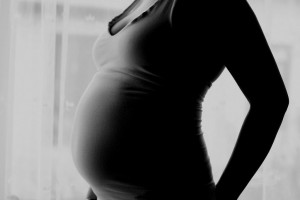‘Baby Gammy’ Raises Awareness for True Nature of ‘Surrogacy Motherhood’
 After two weeks of media reports on baby Gammy, is difficult to discern which version of the story is the one we should believe.
After two weeks of media reports on baby Gammy, is difficult to discern which version of the story is the one we should believe.
Is it true that the Australian couple, who used the services of a Thai “surrogate mom”, upon learning that one of the two children that the “surrogate mom” was expecting suffered from Down syndrome, asked her to have an abortion? Is it true that, when finally the “surrogate mom” gave birth to both children, the wannabe “parents” took the healthy child home to Australia, leaving the “surrogate mom” with the handicapped one? Is it true that they were aware that they were in fact having two children instead of one? Or is it true, as they claim, that the agency that was handling the “surrogacy pregnancy” never informed them of the second child and its handicap?
Whatever may be the case, one thing is certain: such cases are bound to occur, and even with great frequency, wherever the practice of “surrogacy motherhood” is accepted. Surrogacy motherhood is the quintessential expression of a mentality that is unwilling to accept parenthood as a gift, but that assumes that everybody has an entitlement to have a child.
And of course, once this “right to a child” is accepted, it soon evolves into a “right to a healthy child”. Children that suffer from mental defects or physical malformations need not be accepted, because our self-given entitlement is to have only children that fully correspond to our ambitions.
Children, it appears, are now a commodity. It is a “flesh-for-cash” business. In other words: a new form of trafficking, or of slave trade.
It is a strange coincidence that more or less at the same time when the Gammy story surfaced the international media, the European Court of Human Rights (ECtHR) has issued two judgments in which it castigated France for not having given full legal effect to the “surrogacy agreements” French couples had concluded abroad.
Upon reading those judgments in closer detail, it appears that the Court did not intend to explicitly recognize the use of “surrogacy moms” as a new human right.
For all practical purposes, however, this is what those judgments do. Bizarrely, they argue that this is in the best interest of the children concerned, as it might spare them all uncertainties regarding their entitlement to the French citizenship as well as regarding the legal recognition of their “family lives”.
This reasoning is (as is habitual with Europe’s undeservedly “prestigious” human rights institution) completely unfounded, both legally and factually. Both cases concerned children who were created in vitro in a California based fertility clinic, using the sperm of their French fathers and the ova of American women who, according to this peculiar business model, “donated” them.
Being the children of French citizens, they always were under French law entitled to French citizenship – irrespective of whether the State was, or was not, going to recognize the “motherhood” of their fathers’ respective spouses (who, in both cases, were infertile, and biologically completely unrelated to the children). The truth is: no application for French citizenship seems to have been made – and therefore, no such application had been rejected. How can it then be claimed that the State had violated anybody’s rights?
The second limb of the Court’s reasoning is equally bizarre. In order to give legal recognition to the children’s relationships with women who are not their mother, the Court obliges the French authorities to adopt legal decisions that would sever all legal relationships with the women that are, indeed, their mothers. Just another step in the Court’s gradual re-definition of “family life”, which from a well-defined biological reality is turned into some kind of social role-play…
It is very good that the Gammy case has, at least for some days, shed some light on the implications brought about by the horrible practice of “surrogacy motherhood”.
Maybe if such cases come up in the media with greater frequency, this will at last trigger some kind of reflexion process even at the ECtHR.
The two ECtHR judgments:
Menesson v. France
Labassée v. France

